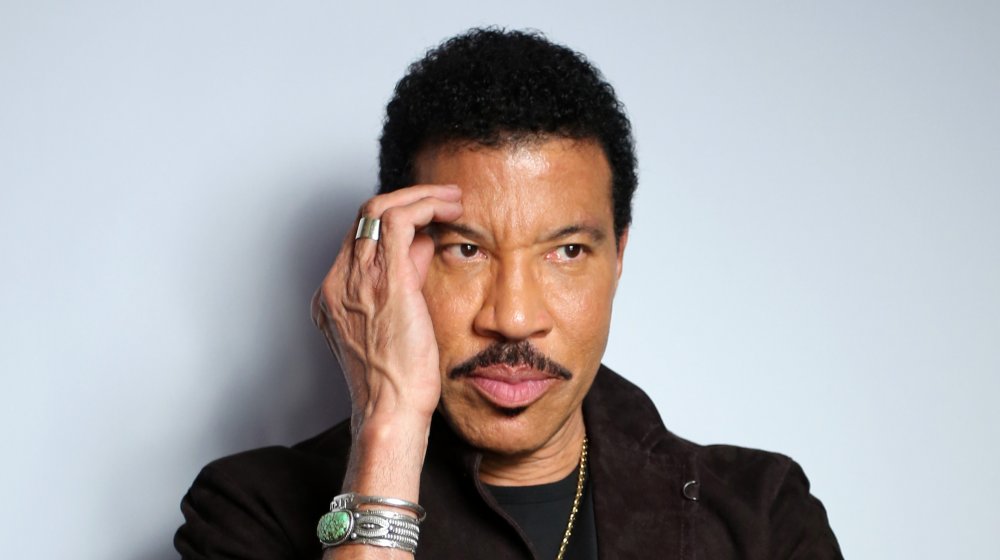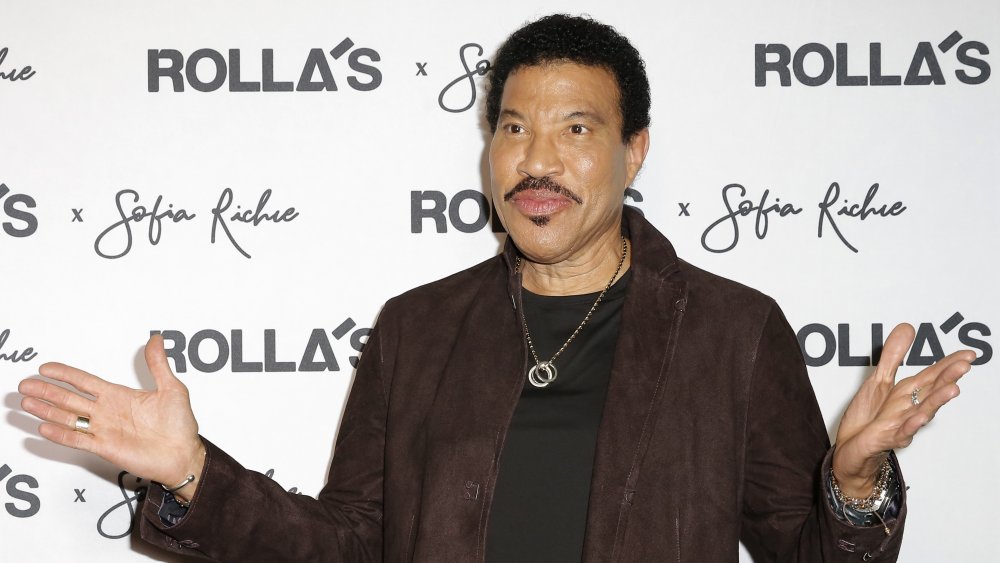The Real Reason Lionel Richie Left The Commodores
Lionel Richie isn't just a star; he's a pop culture supernova. He shines so brightly that he managed to steal the show at the 2013 Bestival festival on the Isle of Wight without actually being there. Per NME, the nautical-themed event showcased a giant inflatable replica of Richie's head. The brainchild of Barcelona's Hungry Castle design collective, according to Design Week, the blow-up noggin doubled as a room with a telephone that rang when guests entered. Those who picked up would receive the ultimate pick-me-up: a recording of Richie singing, "Hello."
This was obviously a hilarious homage to the video for the hit song, "Hello," in which Richie plays an art instructor who secretly falls in love with a blind student, creepily calls her at night but refuses to speak, and finally discovers she loves him back when he finds her sculpting his head in the classroom. As a bonus, the blow-up head was nautical by nature because Richie sang for the Commodores. Unfortunately, a scenario where his outsize head outshines a bunch of less famous musicians inadvertently works as a metaphor for why the "Hello" singer said goodbye to the Commodores.
Fully steamed at a head
The Commodores first set sail on the musical seas in 1968, via the Encyclopedia of Alabama. They picked up steam in 1970 after opening for the Jackson Five. The folks at Motown knew talent when they heard it and brought the Commodores on board. They would tour with megastars like Stevie Wonder and the Rolling Stones while shining in their own right. The band crafted a funk masterpiece with 1977's "Brick House," and then Richie steered the Commodores in a softer direction. He penned their first number one hit, 1978's "Three Times A Lady," and other schmoopy classics.
Lionel Richie was once, twice, three times a singer, and fans loved him. Unfortunately, as his spotlight brightened, the other Commodores felt overshadowed. Richie said that things started to unravel after he wrote the wildly popular "Lady" for Kenny Rogers and "Endless Love" for Diana Ross. Suddenly, journalists no longer saw him as a Commodore but as the admiral of the fleet. Reporters ignored the other members, and reviewers lavished lopsided praise.
According to Richie, the "stab in the heart" was a review that asked, "What's a guy like Lionel Richie doing in a funk band like the Commodores?" With that, Richie reached the end of his rainbow with the band. The Commodores asked if he wanted to make a solo album, so he did. One solo project became two and so on. Richie drifted farther and farther from the Commodores, who charted their own course.

